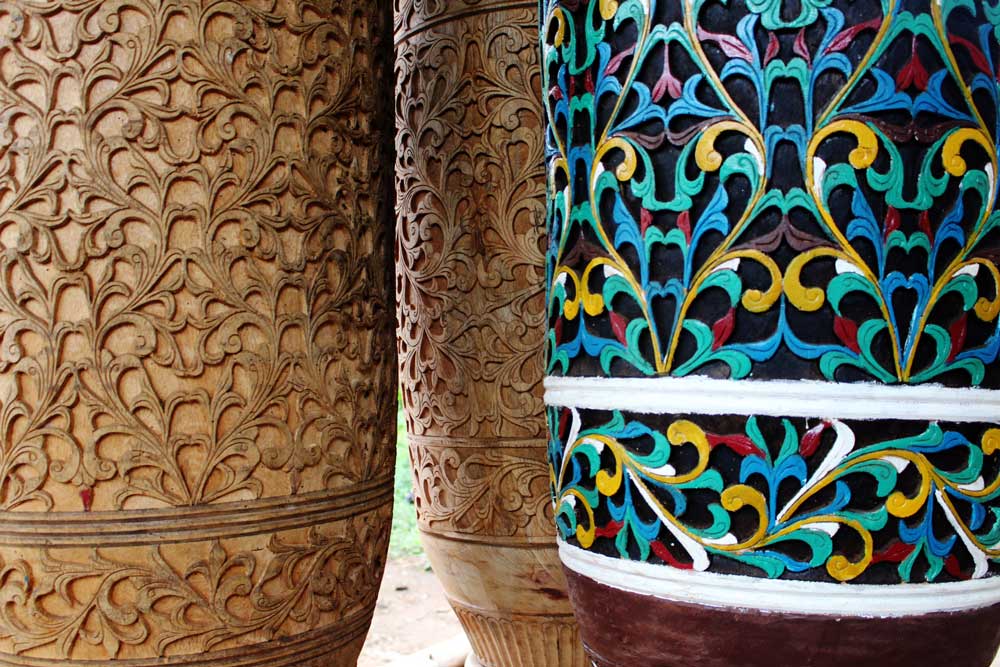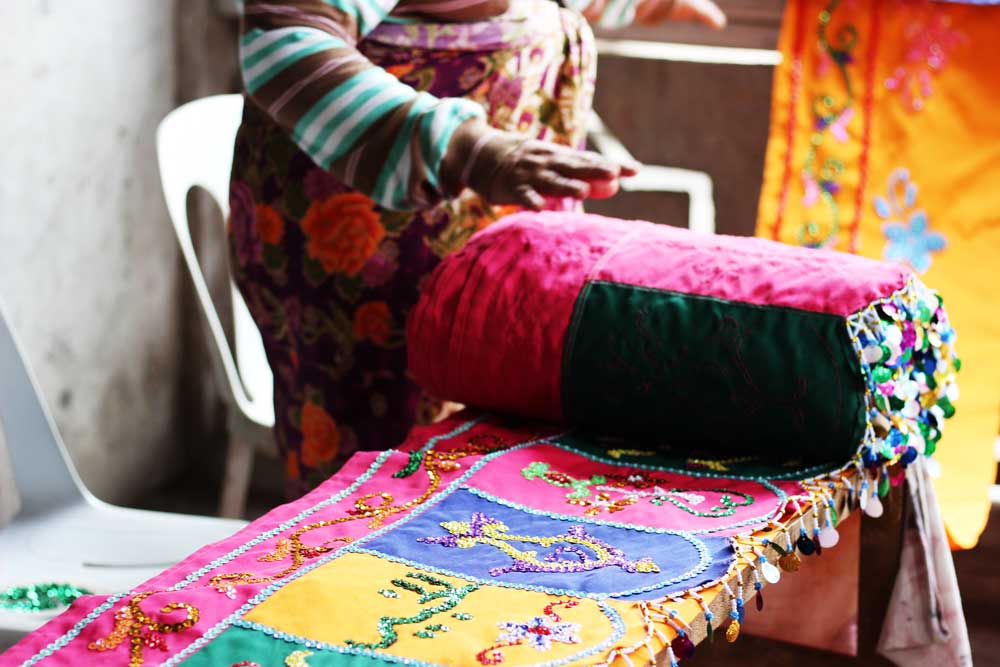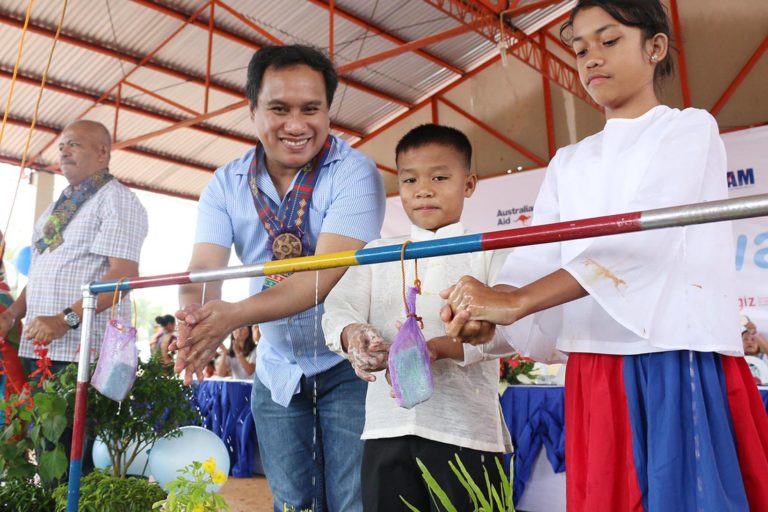President Rodrigo Duterte and Autonomous Region in Muslim Mindanao (ARMM) Governor Mujiv Hataman led the ceremonial switch-on for P187.54 million worth of electrification projects in the region.
The ceremony emphasizes the government’s desire to provide electricity to a total of 38,044 household beneficiaries in 21 sitios (sub-villages) in the region, mostly in conflict-affected areas.
President Duterte, during his first visit on Saturday, October 29, in the ARMM’s seat of government, said he will improve the situation in Moro land. Electrification is part of the Comprehensive Reform and Development Agenda for ARMM aimed at uplifting the lives of the people.
The projects were initiated through the Department of Energy (DOE) and the National Electrification Administration (NEA). About P610 million was already spent in electrification projects in the region these past years.
The projects include Sitio Electrification Program (SEP), Barangay Line Enhancement Program (BLEP), Nationwide Intensification of Household Electrification (NIHE), Household Electrification Program using Renewable Energy System, and Electrification and Support Projects to Host Communities.
DOE Secretary Alfonso Cusi said the government will empower electric cooperatives in the region as they play an important role in helping address the energy crisis and in ensuring least cost and stable supply of electricity to consumers.
The electric cooperatives in the region are the Maguindanao Electric Cooperative (MAGELCO), Siasi Electric Cooperative, Inc., Sulu Electric Cooperative, Inc., Basilan Electric Cooperative, Inc., and Tawi-Tawi Electric Cooperative, Inc.
Sec. Cusi said in his speech that only 50 percent of the sitios in the region are energized. “We have to find ways how can we energize all the sitios and households in the ARMM so that everybody will be given the same level of opportunity,” he said.
Availability of power can generate jobs to thousands of residents, increase livelihood projects, and upgrade technical facilities in schools, as well as in commercial and medical establishments.
In 2015-2016 under the SEP, the NEA has energized 302 sitios with 1,775 household consumers. The cost of energizing these sitios under SEP is roughly, P337.01 million.
The program was aimed at energizing the sitios within the barangays through grid electrification of electric cooperatives. SEP target areas are far-flung sub-villages within the barangay that are feasible for extension of power lines.
Under the BLEP costing P153.64 million, the NEA covered 40 sitios, 266 household beneficiaries while 22 projects are on-going. The BLEP is defined as the transformation of the connection strategy from off-grid such as solar, or small gen sets. Target beneficiaries are areas previously energized through off-grid technologies.
Through the DOE’s NIHE, electricity was provided to 3,689 household beneficiaries in the province of Sulu and Maguindanao in 2015 with a total amount of P14.99 million. NIHE is a three-year program that aims at implementing measures and grant assistance to intensify household electrification.
MAGELCO General Manager Ashari Maongco, during the visit of the President, received a cheque amounting to P13.8 million for the implementation of NIHE program in the province.
Technical assistance to be undertaken includes streamlining of the connection process and policy support to address the issue of slum electrification and flying connections among others.
Its specific targets are poor and qualified households situated in areas where the distribution of electricity are available. The beneficiaries are given house wiring materials and service drop worth P3,750.
There are also 3,868 household beneficiaries in the provinces of Sulu, Basilan and Tawi-Tawi for 2016 under the household electrification program using renewable energy system with P21.66 million in funding. The program involves energization of off-grid households using renewable energy technologies and photovoltaic street lights and communal facilities.
Sec. Cusi said with the electrification program, the agency hopes to make education and health services more accessible in the rural areas. “This is the government's commitment to energizing the off-grid communities,” he added. (BPI-ARMM/PIA-10)
The ceremony emphasizes the government’s desire to provide electricity to a total of 38,044 household beneficiaries in 21 sitios (sub-villages) in the region, mostly in conflict-affected areas.
President Duterte, during his first visit on Saturday, October 29, in the ARMM’s seat of government, said he will improve the situation in Moro land. Electrification is part of the Comprehensive Reform and Development Agenda for ARMM aimed at uplifting the lives of the people.
The projects were initiated through the Department of Energy (DOE) and the National Electrification Administration (NEA). About P610 million was already spent in electrification projects in the region these past years.
The projects include Sitio Electrification Program (SEP), Barangay Line Enhancement Program (BLEP), Nationwide Intensification of Household Electrification (NIHE), Household Electrification Program using Renewable Energy System, and Electrification and Support Projects to Host Communities.
DOE Secretary Alfonso Cusi said the government will empower electric cooperatives in the region as they play an important role in helping address the energy crisis and in ensuring least cost and stable supply of electricity to consumers.
The electric cooperatives in the region are the Maguindanao Electric Cooperative (MAGELCO), Siasi Electric Cooperative, Inc., Sulu Electric Cooperative, Inc., Basilan Electric Cooperative, Inc., and Tawi-Tawi Electric Cooperative, Inc.
Sec. Cusi said in his speech that only 50 percent of the sitios in the region are energized. “We have to find ways how can we energize all the sitios and households in the ARMM so that everybody will be given the same level of opportunity,” he said.
Availability of power can generate jobs to thousands of residents, increase livelihood projects, and upgrade technical facilities in schools, as well as in commercial and medical establishments.
In 2015-2016 under the SEP, the NEA has energized 302 sitios with 1,775 household consumers. The cost of energizing these sitios under SEP is roughly, P337.01 million.
The program was aimed at energizing the sitios within the barangays through grid electrification of electric cooperatives. SEP target areas are far-flung sub-villages within the barangay that are feasible for extension of power lines.
Under the BLEP costing P153.64 million, the NEA covered 40 sitios, 266 household beneficiaries while 22 projects are on-going. The BLEP is defined as the transformation of the connection strategy from off-grid such as solar, or small gen sets. Target beneficiaries are areas previously energized through off-grid technologies.
Through the DOE’s NIHE, electricity was provided to 3,689 household beneficiaries in the province of Sulu and Maguindanao in 2015 with a total amount of P14.99 million. NIHE is a three-year program that aims at implementing measures and grant assistance to intensify household electrification.
MAGELCO General Manager Ashari Maongco, during the visit of the President, received a cheque amounting to P13.8 million for the implementation of NIHE program in the province.
Technical assistance to be undertaken includes streamlining of the connection process and policy support to address the issue of slum electrification and flying connections among others.
Its specific targets are poor and qualified households situated in areas where the distribution of electricity are available. The beneficiaries are given house wiring materials and service drop worth P3,750.
There are also 3,868 household beneficiaries in the provinces of Sulu, Basilan and Tawi-Tawi for 2016 under the household electrification program using renewable energy system with P21.66 million in funding. The program involves energization of off-grid households using renewable energy technologies and photovoltaic street lights and communal facilities.
Sec. Cusi said with the electrification program, the agency hopes to make education and health services more accessible in the rural areas. “This is the government's commitment to energizing the off-grid communities,” he added. (BPI-ARMM/PIA-10)























